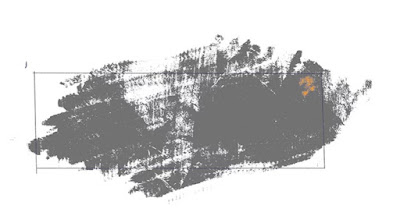PRESERVATION
After they buried the man, the villagers returned
for the crocodiles. They did not care which one
killed the man. Some were longer than the dead man;
some were small as children. They were housed in cement boxes,
slick green, squared water beneath, not mangrove swamps
or deltas, estuaries or river mouths. The villagers did not
care they were safe for now, did not care it was only one.
They brought ropes and tied serrated snouts of crocodiles
that, with a leap, could catch, swallow whole bats, leaping fish,
birds out of air. They dragged 300 bewildered beasts
from ponds into the open where the villagers wailed
the death of one of their own, lifted knives for every animal,
hammers, clubs, beat down the long heads, inscrutable eyes
hooded by scales that not one villager could see far enough
inside to make him hold back once since all knew the spark
they needed extinguished inside the heart of the one animal
before them, inside that brain that they intended to crush
until there was nothing more worth crushing, some groan
we cannot translate seeping from the roped mouths. The man,
they say, was picking grass when the crocodile attacked. Now hundreds
of crocodiles, each perfect in its skeleton, in the way the stomach
worked and tongue, that heart stilled in artisan chambers whose
electric pulse sent blood from nostril to tail, each animal its own
size, colored like agates and jade, every scale a worry stone, round,
one for every hand, now hundreds of crocodiles are dead, and we cannot
make one of them, make even one come back, a pile of limp weeds
shaped like crocodiles swimming in crocodiles stilled: one dead man
cannot say a thing about what he thinks about the body
and what was undone and the darkness he left behind, smoke,
rising from perfect bodies of crocodiles into the flame of sky.
ABOUT THE POET
Joel Long’s book Winged Insects won the White Pine Press Poetry Prize. Lessons in Disappearance (2012) and Knowing Time by Light (2010) were published by Blaine Creek Press. His chapbooks, Chopin’s Preludes and Saffron Beneath Every Frost were published by Elik Press. His poems and essays have appeared in Gettysburg Review, Sports Literate, Prairie Schooner, Bellingham Review, Rhino, Bitter Oleander, Massachusetts Review, Terrain.org, and Water-Stone Review, among others. He lives in Salt Lake City.
ABOUT SUGAR HOUSE REVIEW
We’ve loved reading the work that we’ve published (clearly), so now we want an opportunity to better hear our contributors. We will feature an audio recording of a poem from one of our seven issues, read by the poet and updated every couple of weeks. This an open invitation to all contributors from any of our issues, we were delighted to print your work, now we’re eager to hear it.

